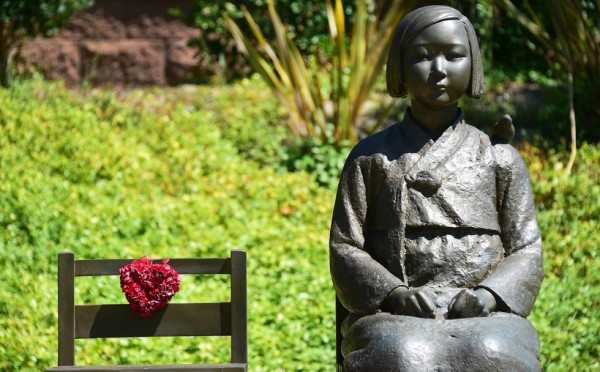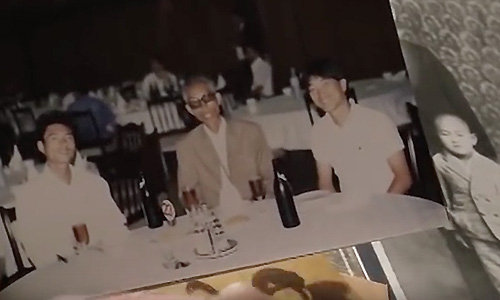A vote Thursday by the California State Board of Education will bring the history of the so-called “comfort women,” sexual slaves from Asian countries taken by the Japanese army during World War II, into the state’s 10th-grade curriculums beginning in Sept. 2017.
The approved History-Social Science Framework for California Public Schools is a major update for history and social science for state classroom curriculums and includes other debated topics like the Bataan Death March, the Battle of Manila, LGBT Americans’ roles in history, the Armenian Genocide and discrimination faced by Sikh Americans.
The approved text for the topic of the “comfort women” reads: “‘Comfort Women’ is a euphemism that describes women who were forced into sexual service by the Japanese Army in occupied territories before and during the war. ‘Comfort Women’ can be taught as an example of institutionalized slavery; estimates on the total number of comfort women vary, but most argue that hundreds of thousands of women were forced into these situations during Japanese occupation.”
This paragraph of text has been the subject of contention between Korean and Japanese groups for years. While Korean and Korean Americans celebrated the vote Friday, with both major Korean-language newspapers in the U.S. – the Korea Daily and the Korea Times – praising the decision, a handful of Japanese groups have long opposed the inclusion of “comfort women” history.
Last year, a group of Japanese historians and academics called for “corrections” to a textbook, “Traditions & Encounters: A Global Perspective on the Past,” published by U.S. company McGraw-Hill, for its description of as many as 200,000 women from Korea, China, the Philippines and Southeast Asia being taken by the Japanese army as sex slaves. They said the text contained factual errors that “run counter to the Japanese government’s position.”
McGraw-Hill stood by its text, and said “scholars are aligned behind the historical fact of ‘comfort women.’”
Not all Japanese groups agree on the history of the comfort women – the Japanese American Citizens League (JACL), the largest Japanese American organization in the U.S., has voiced its support of the Korean community in erecting comfort women statues and memorials, notably the Glendale statue of a young comfort woman sitting next to an empty chair, in the past.
In 2014, the San Fernando Valley Chapter of the JACL said in a statement to the Rafu Shimpo, a Los Angeles-based Japanese outlet, that they “do care about the image and reputation of Japan. However, from our perspective, the continued denial of the stories of the comfort women from the many countries in Asia does great damage to the image and reputation of Japan. We stand in solidarity with these women to their struggle for recognition and justice.” The JACL could not be reached for immediate comment on the framework vote.
Meanwhile, a Change.org petition signed by 6,570 people as of this week, concerning the vote, requested that the text read instead that “Comfort women were well-paid prostitutes,” and “sold their service to the U.S. army as well.”
Steve Kang, executive director of the Korean American Coalition, told Kore the Korean American community sent more than 10,000 petitions to their lawmakers and the education department in support of the inclusion of comfort women history.
“Our community is overjoyed, and this is a historic victory,” Kang said. “Especially with California having the largest Korean population in the United States, we feel we can emulate these results in all 50 states.”
“The adoption of this framework today is an important part of our instructional program,” California State Board of Education President Michael Kirst said. “Hundreds of people representing board perspectives contributed to the development of this important tool … [the framework] will be used with other instructional resources to ensure all students have a broad understanding of history.”
“We want to extend this joy to the comfort women who are still alive, and to the Koreans who participated in making this vote happen,” Korean American Forum of California Executive Director Phyllis Kim told the Korea Times. Kim also told Korean media earlier this year that the initiative had the support of the local Chinese community. “This is a huge first step toward making sure this history is taught across all classrooms in America.”







